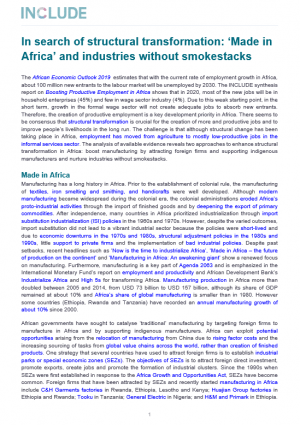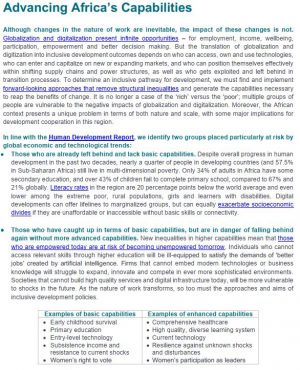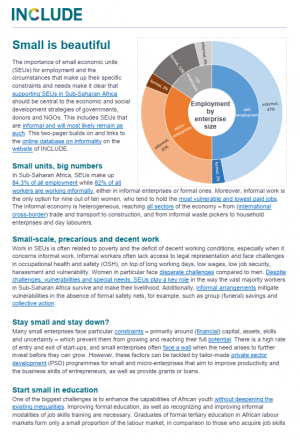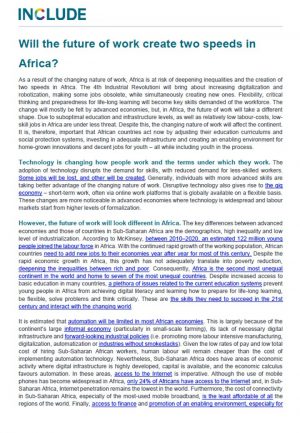
On 16 January, Marleen Dekker from INCLUDE joined the Dutch Ministry of Foreign Affairs seminar ‘Globalization, digitalization and the future of work and skills’. During the panel discussion, following a roundtable with Minister Sigrid Kaag on the future of work that highlighted the opportunities and challenges that the fourth industrial revolution (4IR) poses to employment and skills needs, Marleen emphasized the need for realistic thinking on how the 4IR impacts Africa and what can be done to make sure that new opportunities do not increase existing inequalities.
To support this discussion, INCLUDE produced four articles which address complementary aspects of the debate on the employment, skills and industrialisation in Africa:
- ‘In search of structural transformation: ‘Made in Africa’ and industries without smokestacks’ by Obadia Miroro tackles the issue of weak job creation in productive economic sectors. It discusses various strategies to revive growth, such as boosting domestic manufacturing, attracting foreign investment and developing high-productivity services and agribusiness, and stresses the need to protect against the exploitation of labour and raw materials.
- ‘Advancing Africa’s Capabilities‘ by Hannah Itcovitz makes a distinction between those already left behind due to inequalities in basic capabilities, and those at risk of falling behind again as global shifts demand higher skills, knowledge and connectivity. Given the African context, with both a unique demand for skills and unique challenges in providing them, this two pager calls for strengthening educational quality and minimising inequality to avoid unintended losers from digital developments.
- ‘Small is beautiful‘ by Caspar Swinkels shows the continued importance of formal and informal small economic units (SEUs) in providing jobs and skills to African people and shaping economic transitions. It shows the additional constraints faced by SEUs as they attempt to grow and highlights the need to include SEUs (including informal operators) more actively and centrally in skills, labour and structural transformation policies.
- ‘Will the future of work create two speeds in Africa?’ by Agnieszka Kazimierczuk presents how the future of work in most African countries will likely differ from that of more advanced economies, and how the region’s employment challenges stem mostly from high population growth, low levels of industrialisation and poor connectivity as opposed to widespread automation.
Download each of the articles by clicking on the relevant title link and find them in the relevant items listing below.



